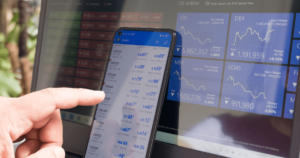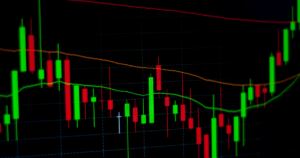Introduction
Forex trading can be a highly profitable and exciting investment practice, but it also comes with its complexities and risks. To navigate the forex market successfully, it is crucial to equip yourself with the right knowledge and strategies. In this article, we will delve deeper into the top 10 forex trading tips that every trader should know. Building upon the insights provided in the source URL, we will explore additional details, address common questions, and offer key takeaways for aspiring forex traders.
1. Learn the Basics & Practice via a Demo Account
Before diving into live trading, it is imperative to understand the fundamentals of forex trading. Start by familiarizing yourself with key terminologies and how financial markets operate. Once you have grasped the basics, consider opening a demo account with a reputable online trading brokerage. A demo account allows you to practice trading with virtual money, enabling you to gain hands-on experience and test different strategies without risking your capital. Remember that learning through practice is essential for developing confidence and proficiency in forex trading.
2. Develop a Solid Trading Strategy
While the forex market offers a plethora of trading strategies, it is crucial to avoid getting overwhelmed by constantly switching strategies. Instead, focus on learning and mastering one strategy that has proven to be effective. For beginners, the “Long Term Breakout Trading” strategy can be a great starting point. This strategy involves identifying breakouts to new highs or lows on the price chart and capitalizing on these trends. By honing your skills in a single strategy, you can better understand its nuances and increase your chances of consistent success.
3. Embrace Realism and Perseverance
Forex trading is not a get-rich-quick scheme. It requires time, effort, and a realistic mindset. While it is natural to aspire for substantial profits, it is crucial to set realistic expectations and recognize that consistent profitability takes time to achieve. Treat forex trading as a journey of continuous learning and improvement. Embrace failures as valuable learning experiences and persistently practice to refine your trading skills. Remember, perseverance and a growth mindset are key attributes of successful forex traders.
4. Exercise Patience: “When in Doubt, Sit it Out”
In the fast-paced world of forex trading, it is easy to fall into the trap of overtrading. Sometimes, the best decision is to not trade at all. Successful traders understand the importance of patience and waiting for optimal trading opportunities. By adopting a long-term hold strategy, you can avoid impulsive trades driven by short-term market fluctuations. Focus on identifying significant trends and aligning your trades with them. Remember, quality trades over quantity can lead to more profitable outcomes.
5. Effective Risk Management
Managing risk is paramount in forex trading. It is crucial to develop a risk management strategy that protects your capital and minimizes potential losses. Never risk more than you can afford to lose. Additionally, when utilizing leverage, exercise caution and only trade with leverage when you have a thorough understanding of its implications. By employing proper risk management techniques such as setting stop-loss orders and diversifying your portfolio, you can safeguard your investments and trade with greater confidence.
6. Choose a Reliable Forex Broker
Selecting the right forex broker is vital for a successful trading journey. Look for brokers that offer a safe, secure, and transparent trading environment. Ensure that the broker is licensed and regulated by reputable authorities such as the SEC, NFA, FCA, CySEC, or ASIC. Consider factors such as trading capabilities, trading platforms, customer support, and fees when choosing a broker that aligns with your trading style and preferences. A thorough comparison of different brokers can help you make an informed decision.
7. Find Your Trading Style
Every trader has a unique trading style and preference. It is essential to identify the trading style that suits your personality, schedule, and risk tolerance. Whether you prefer short-term intraday trading or long-term trend trading, align your strategy with your strengths and preferences. This self-awareness will allow you to stay focused, execute trades effectively, and achieve consistent results.
8. Maintain a Trading Journal
Keeping a trading journal is a valuable practice for forex traders. Documenting your trades, including entry and exit points, reasons for trade decisions, and emotional observations, can provide valuable insights for future analysis. By reviewing your trading journal regularly, you can identify patterns, strengths, and areas for improvement. This self-reflection enhances your trading discipline and helps refine your strategies over time.
Common Questions About Forex Trading
- Is forex trading suitable for beginners?
Forex trading can be suitable for beginners, provided they invest time in learning the basics, practice with a demo account, and develop a solid trading strategy. It is essential to approach forex trading with a realistic mindset and a willingness to continuously learn and improve. - How much capital do I need to start forex trading?
The capital required to start forex trading varies depending on individual circumstances and risk appetite. It is advisable to startwith a capital that you can afford to lose and gradually increase your investment as you gain experience and confidence in your trading abilities. - Can I trade forex part-time?
Yes, forex trading can be pursued on a part-time basis. The flexible nature of the forex market allows traders to participate at their convenience. However, it is crucial to allocate sufficient time for learning, analysis, and monitoring the market to make informed trading decisions. - How can I manage my emotions while trading forex?
Managing emotions is a crucial aspect of successful forex trading. Some effective strategies include sticking to your trading plan, setting realistic expectations, practicing mindfulness and self-awareness, and using risk management techniques to minimize emotional reactions to market fluctuations.
Key Takeaways
- Learn the basics of forex trading and practice with a demo account before trading with real money.
- Focus on mastering one effective trading strategy rather than constantly switching strategies.
- Embrace realism and perseverance, understanding that forex trading requires time and continuous learning.
- Exercise patience and avoid overtrading. Quality trades over quantity can lead to better outcomes.
- Implement effective risk management techniques to protect your capital and minimize losses.
- Choose a reliable forex broker that aligns with your trading needs and offers a secure trading environment.
- Identify your trading style based on your personality, preferences, and risk tolerance.
- Maintain a trading journal to analyze and improve your trading performance over time.
In conclusion, mastering forex trading requires a combination of knowledge, practice, discipline, and continuous improvement. By following the essential tips outlined in this article and adopting a realistic and patient approach, you can enhance your chances of success in the dynamic world of forex trading. Remember, consistent profitability is achievable with dedication, proper risk management, and a deep understanding of the forex market.
Note: The content and information provided in this article are for educational purposes only and should not be considered as financial advice. Always conduct thorough research and seek professional guidance before engaging in forex trading or any investment activity.








